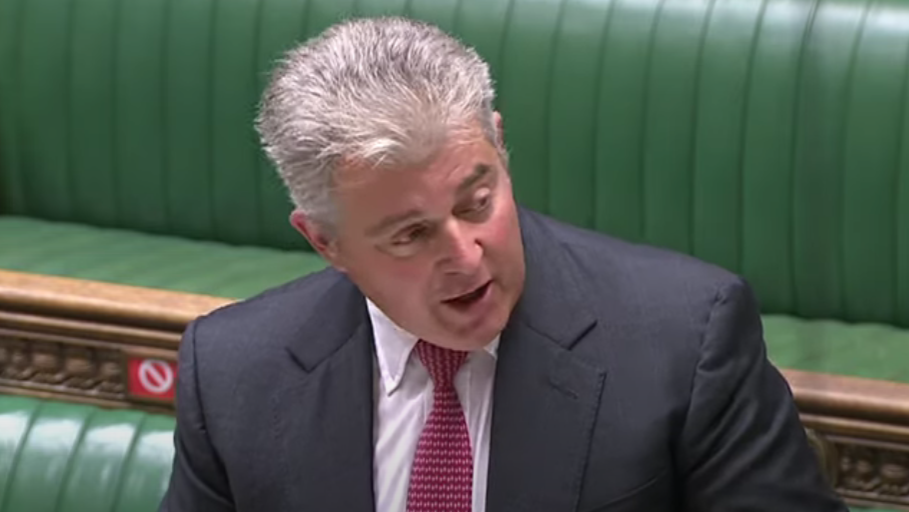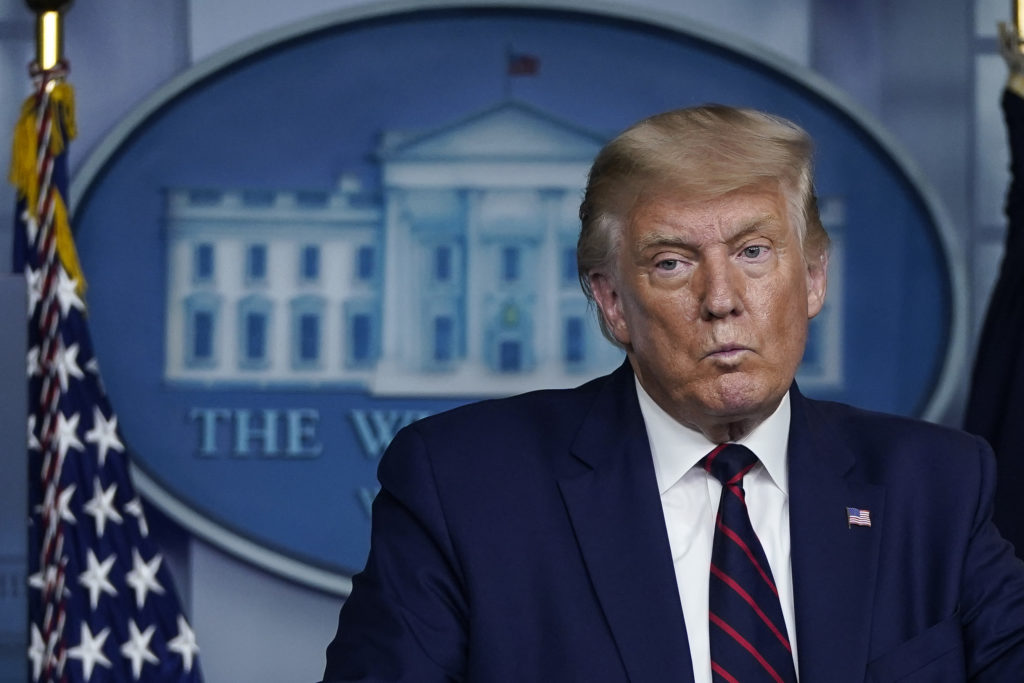DONALD TRUMP'S special envoy to Northern Ireland has warned the United Kingdom against 'accidentally' creating a hard border in Ireland with their plans to override parts of the withdrawal agreement.
Mick Mulvaney was speaking to The Financial Times where he said the Trump administration, State Department and US Congress are "aligned in the desire to see the Good Friday Agreement preserved to see the lack of a border maintained".
The politician was referencing the UK Government's announcement that they intend to break international law by attempting to change parts of the Brexit withdrawal agreement which had been negotiated with the EU, signed and voted into law last year.
The new legislation could undermine parts of the withdrawal agreement and give greater priority to seamless trade between England, Wales, Scotland, and Northern Ireland.
 Northern Ireland Secretary Brandon Lewis was asked to reassure the public that the new legislation does not break international law-- Mr Lewis responded "It does break international law, in a very limited and specific way"
Northern Ireland Secretary Brandon Lewis was asked to reassure the public that the new legislation does not break international law-- Mr Lewis responded "It does break international law, in a very limited and specific way"Some of the clauses will also override parts of the Northern Ireland Protocol agreed last year, in a move that could pave the way for a return to a hard border.
The plans "break international law in a specific and limited way", Northern Ireland Secretary Brandon Lewis admitted while being questioned in Parliament last week.
Mr Mick Mulvaney told The Financial Times that "no one is interested in seeing a hard border between the republic and Northern Ireland" and "the one thing I keep trying to assure is on the front of everybody's minds is avoiding a border by accident".
 Donald Trump's special envoy warned the UK against creating a hard border in Ireland "by accident" in their attempt to override the EU Withdrawal Agreement
Donald Trump's special envoy warned the UK against creating a hard border in Ireland "by accident" in their attempt to override the EU Withdrawal AgreementUS Democratic presidential candidate, Joe Biden, who has roots in County Mayo, also voiced his unwavering support of the Good Friday Agreement earlier this week.
Mr Biden took to Twitter where he said: "We can't allow the Good Friday Agreement that brought peace to Northern Ireland to become a casualty of Brexit.
"Any trade deal between the US and UK must be contingent upon respect for the Agreement and preventing the return of a hard border. Period."
Nancy Pelosi and multiple high-profile members of Congress had reiterated their pledge that there would be no US-UK trade deal if Brexit introduces a hard border in Ireland or threatens the tentative peace which has prevailed in Northern Ireland since the Belfast Agreement was signed in April, 1998.
The bipartisan public support for keeping the island of Ireland border-free comes as the UK Secretary of State for Foreign, Commonwealth and Development Affairs, Dominic Raab, visited the US in an attempt to gain support for the British Government's Brexit deal.

